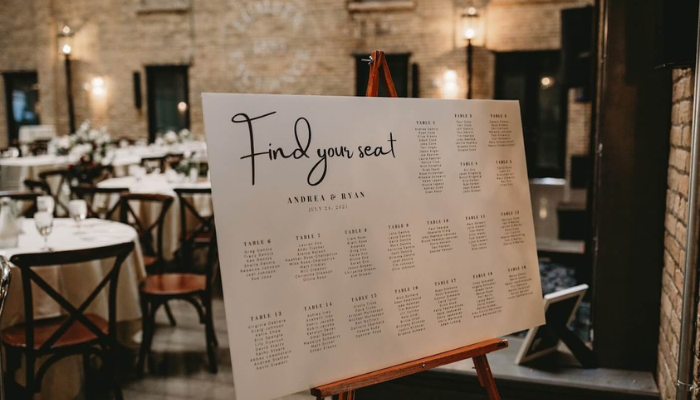7 Tips for a Stress-free Wedding Planning Experience

Wedding planning can be one of the most exciting things, but it also causes more anxiety, stress, and fear. Wedding Stress can keep you tensed and worried about all your wedding functions, event, dress, and more. However, with the exact and proper wedding planning and management, you can have a stress-free wedding planning experience. So, let’s explore the ten tips to help you plan your unique wedding without worrying about getting dressed.
1. Just calm down and think what’s more important

(Source: Google Image)
Yes, we know you might be stressed and think there are more tasks to do. Where should I start, and how should I manage all things for my special day? That’s okay. For now, just calm down and sit down with your partner to list the things that are more important for both of you regarding your wedding our weddings.
A wedding dress, wedding venue, food, function and more. Prioritizing the importance can help you gain clarity, and you will find yourself more excited than when you experience stress at the wedding.
2. Think about your Wedding Budget

(Source: Google Image)
Marriage can be expensive if you don’t plan your wedding budget. But why would you speed at something that is not vital for you. As Mentioned above that think on what’s important for you. May be its food, venue photographer, dress and more. Don’t overspend above your budget, you will regret it later. Therefore, you can set realistic priorities based on your values and allocate funds accordingly.
So let’s say you select a location with an add-on room rental, start the party especially early in the day, select the most high-quality food and expensive wines, and want to offer long drinks, cocktails, and midnight also check with the numerous select a location with an add-on room rental, start the party especially early in the day, select needed.
3. Look for the Guest List

(Source: Google Image)
Managing guests can be a big challenge. There are more people you value and love, and there are guests whom your parents value and love. Every family is different, so this tip is not going to be a one-size-fits-all approach.
Stick to the people who you want to prioritize and recognize. Usually, you can invite 15 to 20% more people than will attend. Also, sometimes it is vital to invite the relative you live far away from because he might feel bad if he can’t come and get your wedding gift.
So its vital to set boundaries and stick to them. De people get a plus 1? Also consider the kids. You need to plan everything about your guest before they you plan wedding venue.
4. Automate your Tasks

(Source: Google Image)
You can use the technology to make your life easier. There are many different ways you can go about automating your wedding tasks. You can use different platforms to handle all your tasks like guest lists, registries, and any information people need to know, all under one roof.
Also, there are great wedding planning apps that will help you keep track of your takas. Another option with automating is to have addresses printed on your invitations. While this may cost more money, it also saves much of your time.
5. Eliminate the unnecessary things

(Source: Google Image)
By cutting out necessary details, you can redirect your focus and resources toward what truly is important and matters to you and your partner. Whether it’s creating memorable moments with loved ones or investing in elements that reflect your unique personality, eliminating distractions allows you to prioritize what’s important.
You can always eliminate unnecessary things; you can redirect your resources and focus on your special day.
6. Plan a Honeymoon

(Source: Google Image)
Plan a Honeymoon. Your marriage is a special thing and your wedding is a very exciting event. Celebrate that with your spouse. Don’t have your wedding Saturday and then go to work on Monday. Take time and enjoy what just happened before jumping back into the busyness of life.
Tell the hustle, rise and grind, culture to hop off. If you are anything like me you aren’t good at rest and vacation, but this is an important discipline. Don’t move so quickly through your wedding and your life that you don’t even realize what is happening. Go on a road trip, stay at a family cabin. What you do doesn’t matter. What matters is that you do something.
7. Plan for the worst, Hope for the best

(Source: Google Image)
Planning for unexpected mishaps will help you stay one step ahead. You don’t need to rush to arrange many things at the last minute. So, when you are planning, consider unfortunate incidents like the weather conditions of your wedding venue or a health emergency. Also, you may face last-minute cancellations from vendors or even your makeup artist’s cancellation due to some emergency. So keep all these things in mind and have another plan ready.
Thus, it’s critical to have optimism, which entails accepting, making the most of, and having faith in the planning process.
Summing Up
Stree-free wedding planning needs a good ploting and planing. With the above-mentioned tips, you can celebrate happily without taking wedding Stress and make your day more memorable. Also, over the top, Enjoy your dream day and make memories that last forever.
